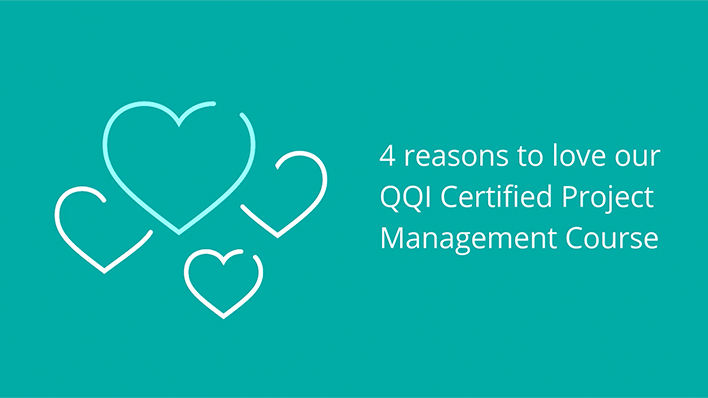Idea to Achievement: The Journey of A Project
Project management can often seem like a mystical art. Complex reporting, planning tools, and a myriad of methodologies appear daunting and can put you off undertaking any major project.
It helps to remember that every project is a journey, and like any journey, you can equip yourself with everything you need for the trip.
Here, we’ll take a look at the stages along a project adventure, and give you tips and guidance on how to prepare for your next trip.
Get an Instant Overview
You can get access to information about our
Project Management courses by instantly downloading our PDF brochure, "A Guide to our Project Management Courses and Certifications".
In This Article:
From Spark to Achievement
How do you get from the spark of an idea to the achievement of your goals?
This year’s Pulse of the Profession® report, compiled by the Project Management Institute, Inc (PMI)® has many excellent findings. One of the themes that really caught our attention is how project managers turn ideas into reality.
Project managers really are the bridge between an idea and the achievement of a goal.
For those of us who are new to project management, or simply scrambling to run projects with no formal background or training, getting from a great idea to a great achievement can feel like an impossible challenge. Also, how can we do it efficiently, staying within budget and on-time?
We can do it by using skilful project management.
Run your projects like a journey. You’ll get where you need to go, learn a lot in the process, and maybe even have some fun along the way.
Stages of the Journey
Depending on the structure of your business or project, the details of your project journey may vary. The following stages are common in nearly every undertaking.
1. Idea
Define a goal or goals for your project.
2. Decision
Present a business case and gain support from key stakeholders. Initiate the project.
3. Planning
Scope out the project work and choose your team.
4. Action
Get started! Your project kicks into action.
5. Troubleshooting
Address and solve any issues that crop up along the way.
6. Manage
Stay engaged with the project team and stakeholders. Continually review progress and adjust for any new developments.
7. Achievement
Reach your destination! Achieve your goal! However you word it, this is a success point.
8. Reflection
Take time to review how your project went. Learn from both successes and failures, and bring this knowledge into your next endeavour.
Pack for the Journey
Once you have decided to go for it, you need to decide how you’ll undertake your adventure.
How will you travel? Which methodology is best for tackling this project?
What do you need to pack? This relates to the resources you’ll need and the tools you’ll use to execute the project.
Key Skills:
- Understanding project management methodologies
- Confidence and understanding of your chosen method
Travelling Companions
Your project team are key to a productive and pleasant project journey.
Take time in the early planning stages to think about the skills you’ll need, and who will work best together.
Key Skills:
- Identifying team strengths and weaknesses
- Understanding who works best together
Happy Travels
Once you’ve planned your project and gotten your team in place, it’s time to set off.
Throughout the project, it’s crucial to remain engaged – both with your team and your stakeholders. Communicate regularly, review progress, address changes, and adjust capacity and timeframes as needed.
Key Skills:
- Communication
- Stakeholder management
- Project monitoring and controlling
Adventures Along the Way
Even the most prepared travellers will encounter cancelled flights.
Part of being an effective project manager is understanding how to insure yourself against total catastrophe, and handle any unavoidable bumps in the road with ease.
Key Skills:
- Risk Management
- Controlling Changes
- Project Team Management
Arrive at Your Destination!
You did it! You reached your goal!
You and your team can take time to savour a job well done.
Learn from the Journey
No project is uneventful. You’ll stumble across inspiration, find new ways to do things, and come up against obstacles.
It’s tempting to move straight to a new project once you have achieved your aim. However, taking time to close a project and reflect on all you learned is invaluable. You will equip yourself and your team with new wisdom and ability to do even better in your next venture.
Key Skills:
- Closing a project
- Team performance management
Gaining Key Skills
You can gain all of the key skills mentioned above through a combination of training and continuous self-evaluation.
Training doesn’t have to take a huge chunk of time (our longest project management course is 5 days), and self-evaluation can happen as you work actively on projects.
Ready to Travel? Let's Go...
Here are some excellent options for project management training and certification.
Certified Project Management
Gain practical project management skills in 4 days with our QQI Certified Course.
Read More
PRINCE2® Foundation & Practitioner
Achieve the respected PRINCE2® Foundation and Practitioner certifications. This is a 5-day course.
Read More
PMP® Exam Prep
The Project Management Professional (PMP)® credential is designed for experienced project managers.
Read More
Agile Certified Course (SAMCTM)
Learn about an agile approach to project management and gain international certification.
Read More
Scrum Master Certified (SMCTM)
Become a confident, internationally certified Scrum Master with our 2-day workshop.
Read More














